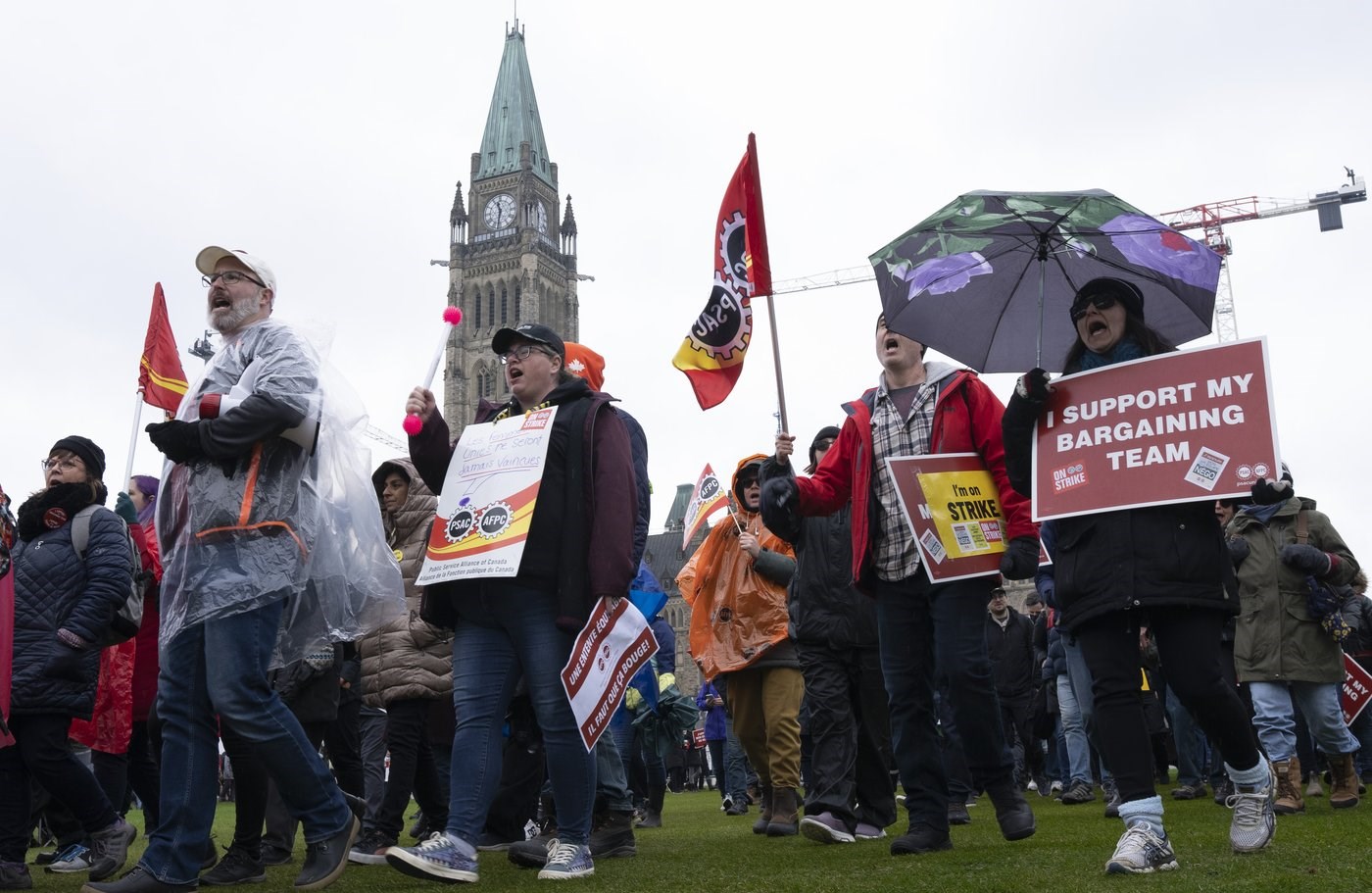
Striking Public Service Alliance of Canada (PSAC) workers walk a picket line around the front lawn of Parliament Hill in Ottawa on Wednesday, April 26, 2023. THE CANADIAN PRESS/Adrian Wyld
Republished June 12, 2025 - 3:02 PM
Original Publication Date June 12, 2025 - 11:21 AM
OTTAWA — Two years ago, more than 120,000 federal public servants went on strike after negotiations broke down.
Now, the union representing those workers is going back to the bargaining table with the government with the goal of securing greater job security and remote work options for its members.
The Public Service Alliance of Canada says next week's initial meetings offer its first opportunity to present priorities identified by members, such as better wages, greater job security and stronger provisions for remote work.
Those issues were all front and centre during the 2023 strike, which saw public servants spend almost two weeks on picket lines across the country.
Sharon DeSousa, national president of PSAC, said contract discussions can take anywhere from weeks to years.
She said the union's bargaining teams are "ready to set the tone" and get a good contract, adding that striking is always the "last resort."
The union said the initial talks are the government’s first chance to show it's ready to make meaningful improvements to public servants' working conditions.
"We're about improving the working conditions and we're hoping that the government is interested as well," DeSousa said. "These are the same workers who protect our coasts, assist businesses and farmers, and deliver vital social programs and respond to emergencies like wildfires.
"We're hoping that we're able to sit down and deal with the main issues at hand."
Rola Salem, a spokesperson for the Treasury Board of Canada Secretariat, said in an email that the government looks forward to a "productive round of collective bargaining" with the Public Service Alliance of Canada.
"We are committed to negotiating in good faith and to reaching agreements that are fair to employees and reasonable for Canadians," she said.
David McLaughlin, a former provincial official in Manitoba and president and CEO of the Institute on Governance, said the union's requests seem to be a "continuation" of the last round of bargaining.
"I would not expect that the current government would have a radically different view of how to treat those issues," McLaughlin said. "I'd be very surprised if they reverse their position on remote work. They're trying to hold the line, as they did last time."
McLaughlin said he expects the government will put some more money toward wages. He added that job security likely will be the biggest issue at the table for both the union and the government, which has committed to "capping" the size of the public service.
This report by The Canadian Press was first published June 12, 2025.
News from © The Canadian Press, 2025